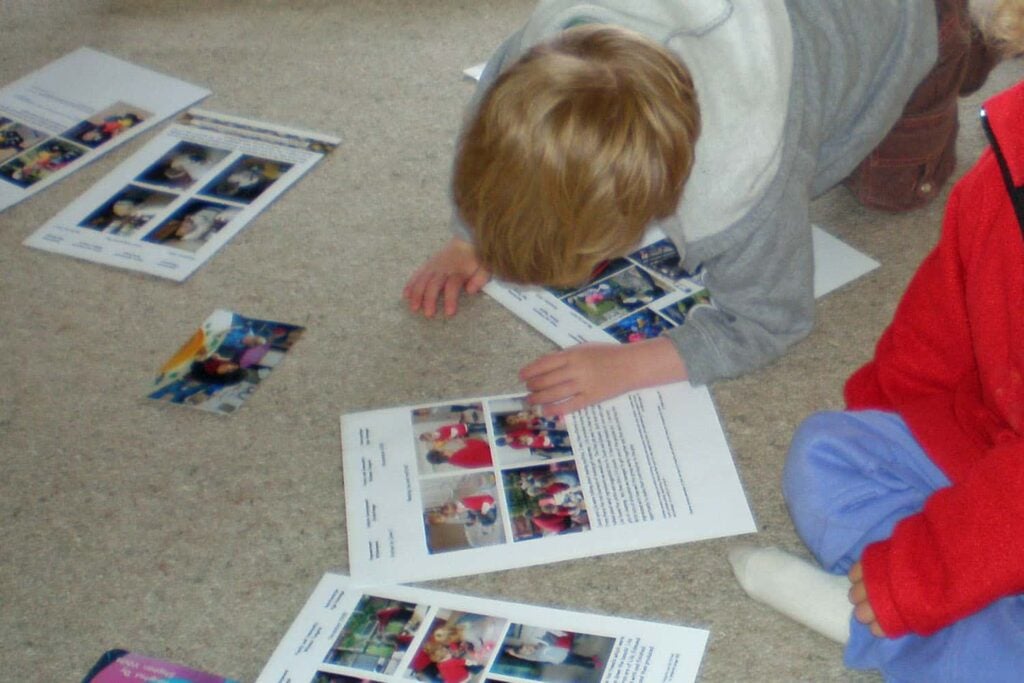The Pay Equity Process.
May 25, 2021.
By David Haynes.
The process for progressing a pay equity claim is detailed in the Equal Pay Act 1972, which was amended last year to put a lot more substance into how claims can be raised and negotiated.
In ECE the majority of funding comes from the government through the Ministry of Education. This means that employers are not able to negotiate in good faith and agree to pay what they believe their staff are worth unless the government comes to the party with some funding.
When the Act was amended last year the Public Services Commission (used to be the State Services Commission) came up with a framework to try to clarify how government agencies that provide funding (the Funding Agency) should engage and facilitate the process, without appearing to step into the employers’ shoes. For ECE the Funding Agency is The Ministry of Education – the Framework can be found here
Whilst my Official Information Act requests have resulted in some redactions being removed, there is still a fair bit that we can’t see.
If you look at Appendix 2 on page 16 of the pdf you will see that the final phase is “Settling claim” which is Milestone 6. The process finishes with a happy little purple arrow that says “POST settling claim”. I have asked both the Ministry of Education and the Public Services Commission at what point in the process the Funding Agency undertakes to provide funding. They are consistent in their answer; both say that providing funding is not part of the process.
This provides a problem in that no employer in their right mind will settle a pay claim if they do not know that they can fund it, yet the Funding Agency will not commit to providing funding until after a claim has been settled.
This means that, before I can negotiate with employers in good faith, I need to resolve this catch, and that’s what I am trying to resolve right now. Cabinet approved the Framework, so I probably need a Cabinet decision to clarify how on Earth individual pay equity claims in the funded sector can be brought to successful conclusions with a guarantee that they will be funded.
For members of the ‘education service’ (school and ‘kindergarten’ teachers) the very act of the Secretary for Education (who acts as the employer for the education service) signing a collective agreement commits the government to provide funding. None of this helps non-kindergarten ECE where the employer’s decision does not commit the government to anything. Non-kindergarten ECE are, again, left out in the cold.
My next step is to write to the Minister of Education and the Minister for the Public Service. Happily both portfolios are filled by Hon Chris Hipkins so that, at least, will reduce the volume of correspondence. I’ll let you know how I get on.
Status of the pay equity claims
At an early stage many employers agreed that the claims were arguable. The next step is to negotiate the claims with employers. Some employers are seized with the critical importance of having properly paid teachers and, if there was a guarantee of funding, would happily say that we have reached Milestone 6 in the Framework process. However, there is little point in taking up employers’ time with that unless I can show them that the government will fund the outcome.
As noted above, the next step is to get Hon Chris Hipkins to agree to bring the current apparent impasse in funding non-education sector pay claims to Cabinet’s attention and get them to make some changes. Wish me luck. ?
Early Childhood Council
From the very beginning the Early Childhood Council (ECC), who represent the interests of (some) employers, not of teachers or of children, have been trying to delay the progress of the individual pay claims raised by those who work for members of the ECC.
I have been engaged in considerable correspondence with ECC’s CEO, Peter Reynolds. He has tried to impose the Act’s provisions relating to a union claim on the individual claims. The law does not allow this. He has been resisting accepting that the pay claims are ‘arguable’. Remember that ‘arguability’ means that your workplace is dominated by female employees and that you have been historically underpaid. You can judge the gender balance in your workplace. The Minister has said that you are underpaid. It seems simple.
From my perspective. the decision about arguability has always been simple, but not for the ECC. It has taken until 23rd May for ECC to accept that the claims have been deemed to be arguable because the timeframes allowed in the law have been exceeded. Even then Peter Reynolds states “Please understand that even if that is so technically, we have not completed our assessment of the claims including whether it is arguable the work is or has been undervalued.”
I suspect that further negotiations with ECC will not be simple, especially when Peter Reynolds says “We also consider it is important that these claims are progressed alongside the union claim . .” I have sought advice both from the Ministry of Education and from the Public Services Commission. They are both very clear that individual claims are just that, individual claims. They cannot be conflated with the union claim in the way that ECC is still trying to cling to.
Budget Announcement
The budget announced three things that are directly relevant:
- from 1st January 2022, providing a 1.2% increase in ECE funding rates,
- providing funding to progress pay equity claims, and
- from 1st January 2022, providing funding for centres that agree to pay in line with the bottom six steps in the KTCA.
Also, the Minister announced that, from 1st July 2021, the attestation rate would be adjusted to keep it in line with the lowest step on the KTCA. That is an increase of 72 cents per hour taking the rate to $24.69 per hour. Meanwhile the minimum wage has recently increased by $1.10 per hour. A new funding rate comes into effect on 1st July 2021 which is intended to cover the increased costs of the new attestation rate. It contains only a small increase.
1.2% increase
This increase comes in on 1st January 2022. Here’s what the detail in the budget said:
Cost Adjustment for Early Childhood Education
This initiative provides funding for a 1.2 percent increase to funding rates to meet increased costs for Early Childhood Education (ECE). This funding will help all funded ECE services and kōhanga reo manage increasing costs of provision and maintain quality and affordability for families and whānau. This applies to the existing ECE Subsidy for Under 2s, ECE Subsidy for 2s and Over, 20 Hours ECE, and all components of Equity Funding, with effect from 1 January 2022.
The increase in Targeted Funding for Disadvantage will take effect from 1 March 2022.
Vote 2021/22 2022/23 2023/24 2024/25 Operating Total Capital Total
Education 13.362 28.206 29.124 29.996 100.688 –
According to Statistics NZ, as at March 2021 CPI was running at 1.5% per annum. The last increase to ECE funding was 1.6% on 1st January 2021. If CPI remains at its current level, the 1.2% in this budget will, by the time it is introduced in 2022, represent a real world reduction in overall ECE funding.
Pay Equity Claim Funding
The budget included:
Investigating and Negotiating Pay Equity Claims
This initiative provides funding for staff and related operational costs associated with the assessment and negotiation of pay equity claims for education sector workforces. These claims seek to remove gender-based undervaluation in the education system. Addressing inequity in pay rates recognises and values the work of people working in education, improving retention and engagement, which in turn improves outcomes for learners.
Vote 2020/21 2021/22 2022/23 2023/24 2024/25 Operating Total Capital Total
Education 0.610 9.023 8.944 6.285 4.485 29.347 0.480
Note, this isn’t money to increase pay as a result of successful claims, this is money to fund the Ministry of Education’s bureaucracy to handle and process claims. Note also that this is funding to process claims across the whole education sector. It’s not just for ECE, but for secondary and primary as well. You might think that you could do this analysis for less than nine million dollars a year, but it’s less money than you might think – compare the $9million in 2021/22 with the $28 million needed in the same year just to provide the 1.2% funding increase to ECE.
KTCA Six Steps
The budget said:
Moving Towards Pay Parity for Teachers in Education and Care Services
This initiative provides funding towards moving qualified and certified teachers in education and care services closer towards pay parity with kindergarten teacher pay. The funding will support an increase in the minimum salary education and care services must attest they are paying certificated teachers. It provides a set of higher funding rates education and care services may opt into if they agree to pay these teachers defined pay steps based on the kindergarten teachers’ collective agreement.
Vote 2021/22 2022/23 2023/24 2024/25 Operating Total Capital Total
Education 29.413 52.680 53.880 55.392 191.365 1.044
Things to note about this:
- Whilst the Minister has accepted that non-kindergarten teachers are underpaid, and he deserves credit for that, we all have to now wait until 1st January for the increased funding.
- The detail in the budget doesn’t mention the six steps in the Kindergarten Teachers, Head Teachers and Senior Teachers’ Collective Agreement (KTCA). That was in the Minister’s pre-budget announcement where he said “Another set of higher funding rates will be made available from 1 January 2022, if services agree to pay teachers in line with the first six pay steps of the same collective agreement kindergarten teachers belong to.”
- This is not a compulsory increase in pay, it is an increase in funding for employers that attest that they are paying at the bottom six of the KTCA’s 11 steps.
- It will be up to employers to look at the new funding rates and work out if they can afford to pay in line with the KTCA’s bottom six steps. If their increased wage bill would be substantially greater than the funding increase, they will be tempted not to apply for this higher funding and leave their teachers’ pay as it is. Hopefully the new funding rate will prove to be a big enough increase.
- The KTCA contains some provisions relating to levels of qualification and experience, and how these will be recognised when assessing which step someone should start on and how they progress to a higher step. The intent seems to be to mirror the KTCA’s provisions. Hopefully, whoever in the Ministry of Education is writing the detail of the attestation statement is alert to the loopholes that financially hard-pressed employers will be tempted to look for.
- This announcement just addresses pay rates. It does not deliver any of the other benefits that are built into the KTCA such as leave entitlements and provision of non-contact time. It remains up to individuals to negotiate these with their employer.
Final Word
When I launched this pay equity initiative I hoped that it would be a quick way to deliver to non-kindergarten ECE teachers some justice along with the pay that they deserve. Real life has not proved so simple.
I shall continue to fight the bureaucracy and will attempt to get Cabinet to inject some sanity into the funding arrangements, but sadly this will take time.
The large number of teachers who have asked me to represent them now means that I cannot email them all. This is because the email system thinks that I am trying to send out spam and blocks the email.
I am most happy to receive emails from anyone, teacher or employer, who has any questions or observations. Also, additional people can still join the claims process (so long as they are not NZEI members who I am not allowed to represent) by filling in the form here: https://www.surveymonkey.com/r/ECEpayclaim
Sorry that there is so much in this update, but the situation is complex and the budget announcements are relevant.









